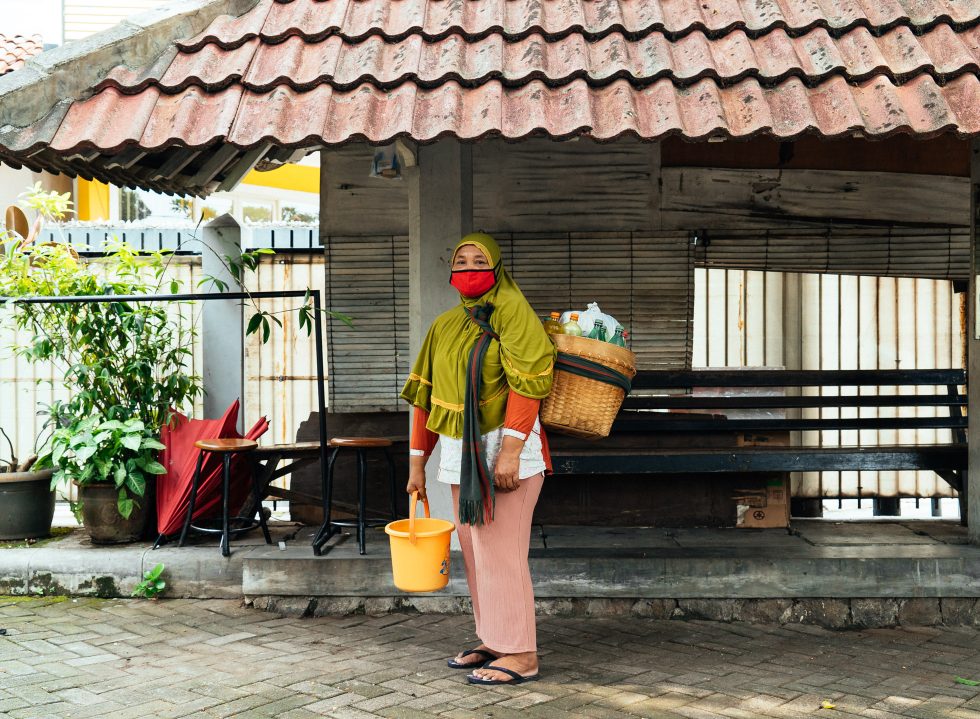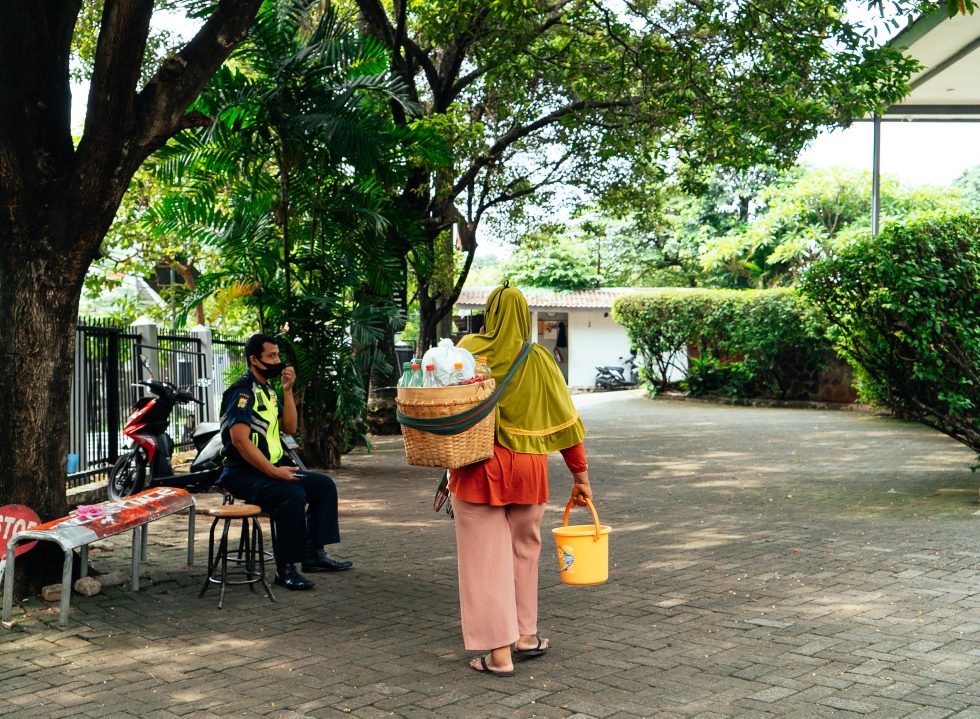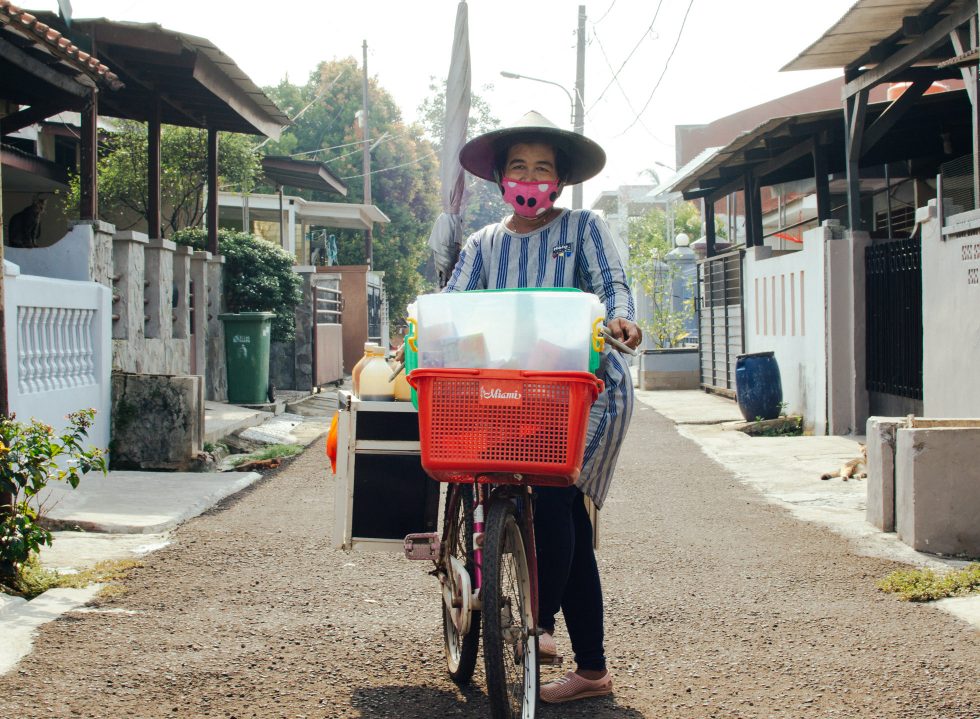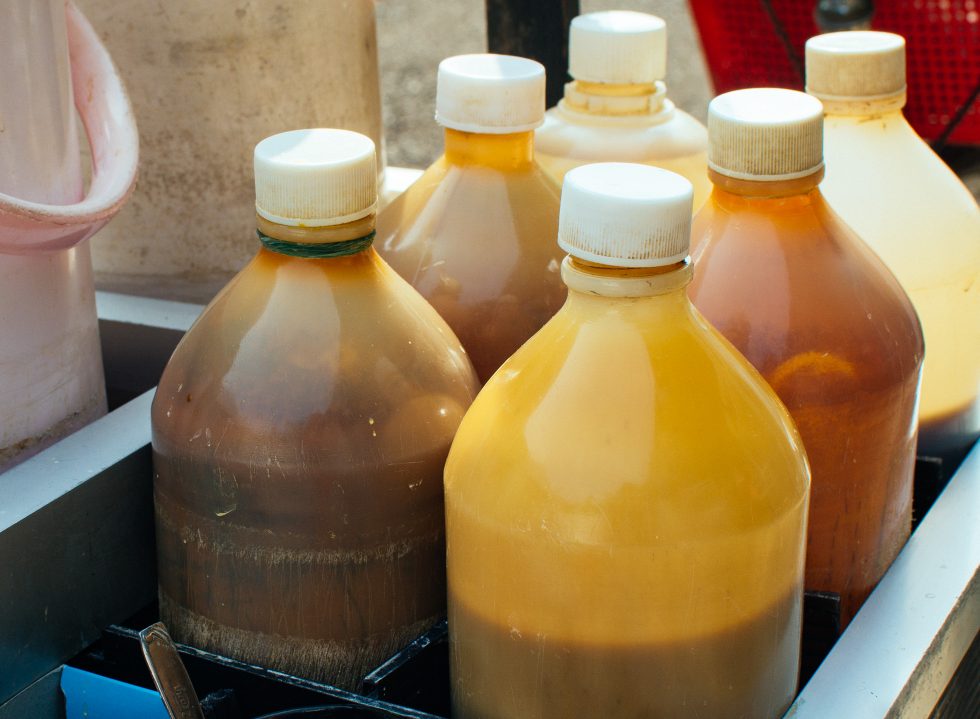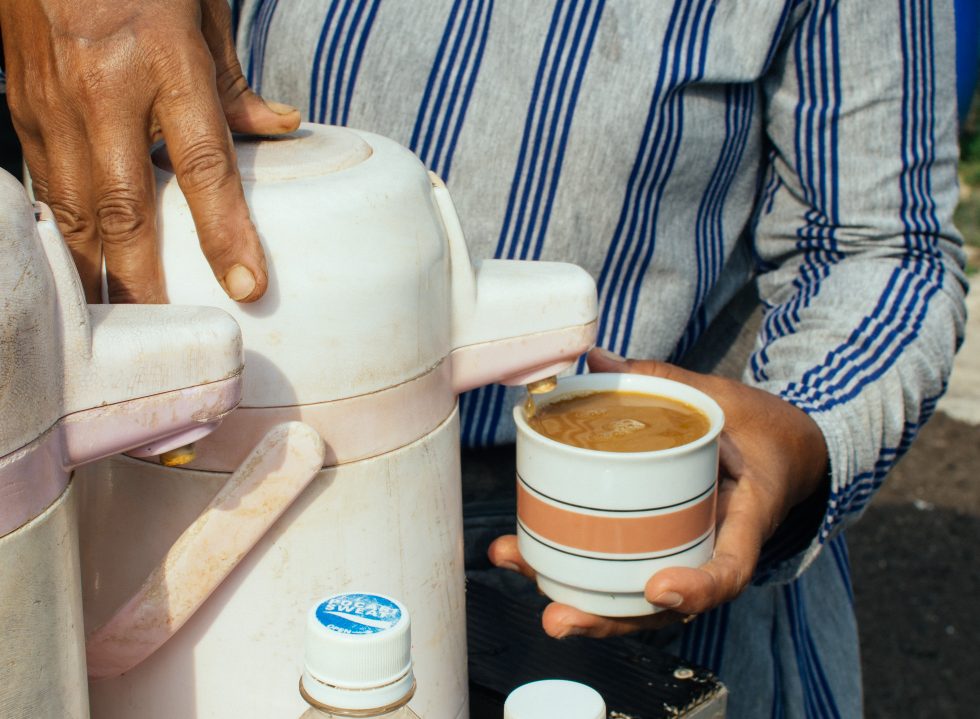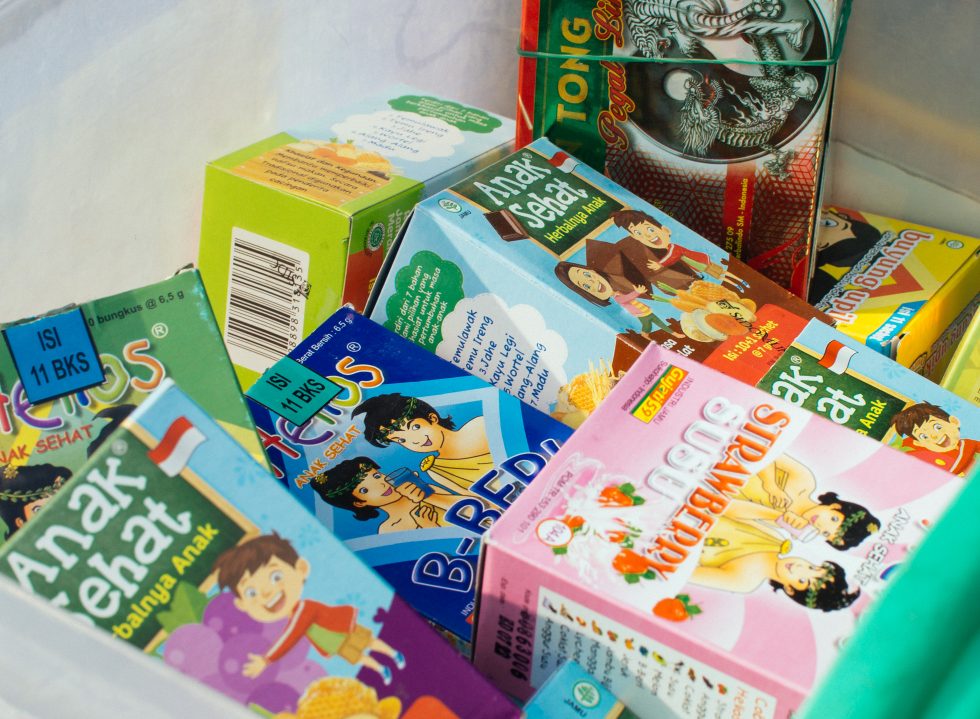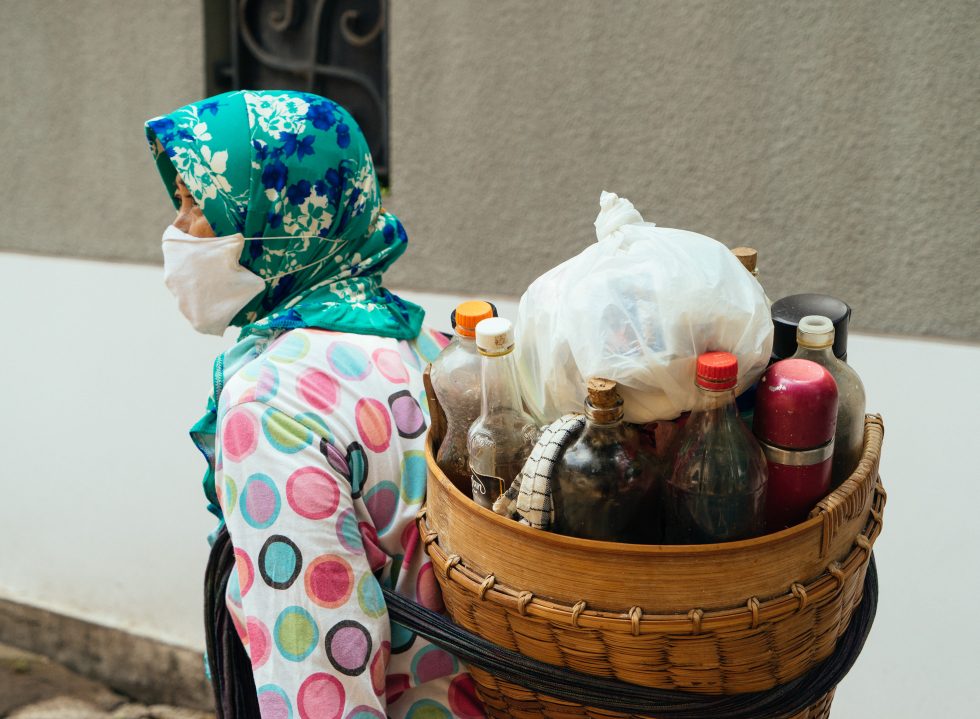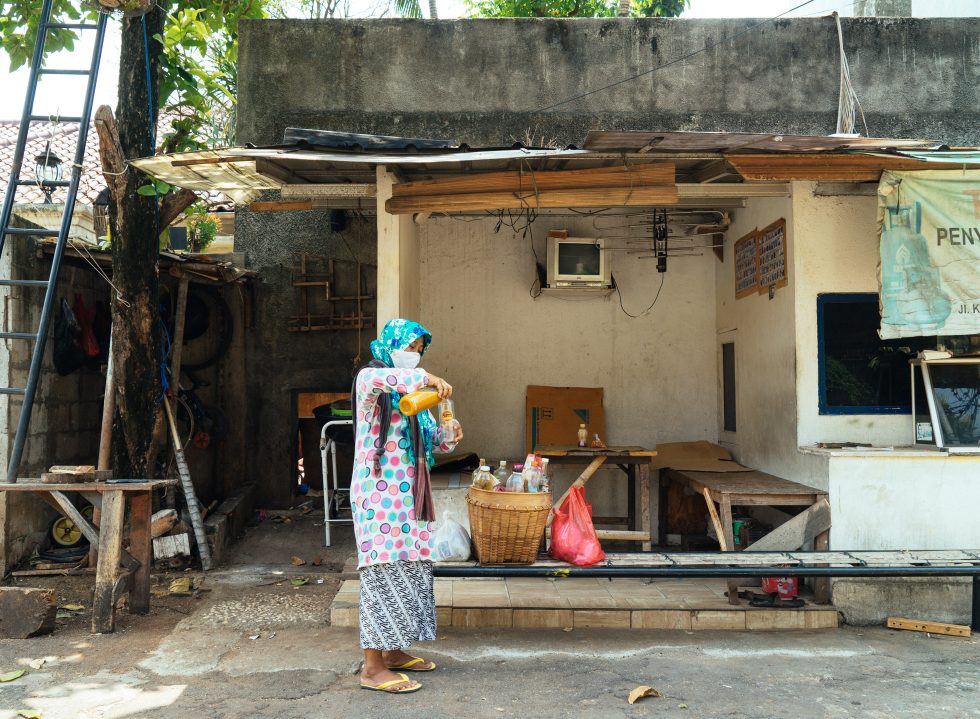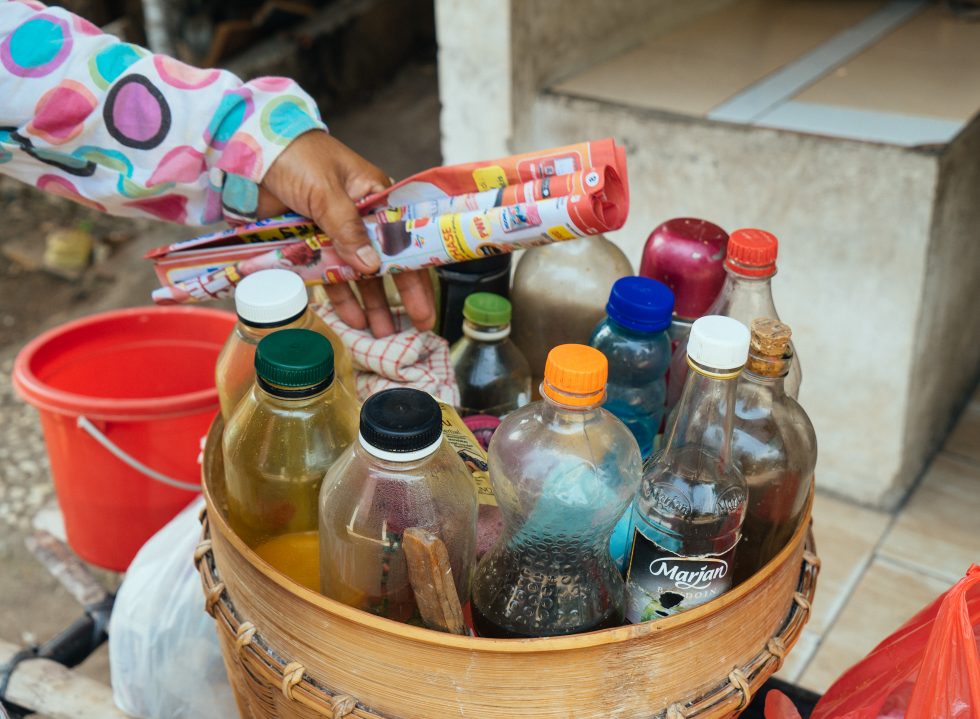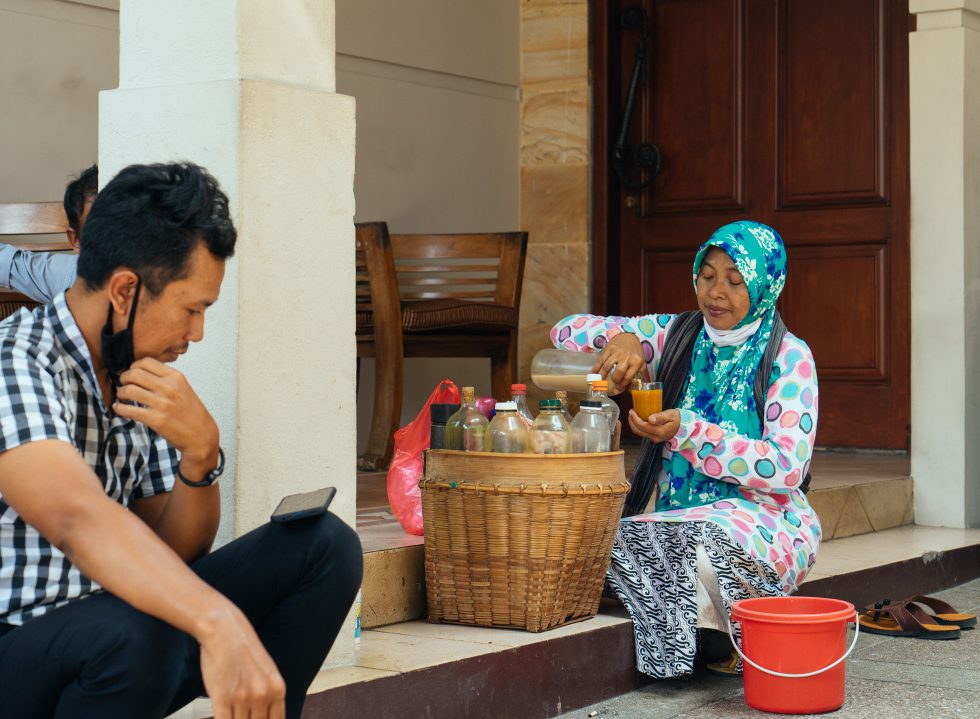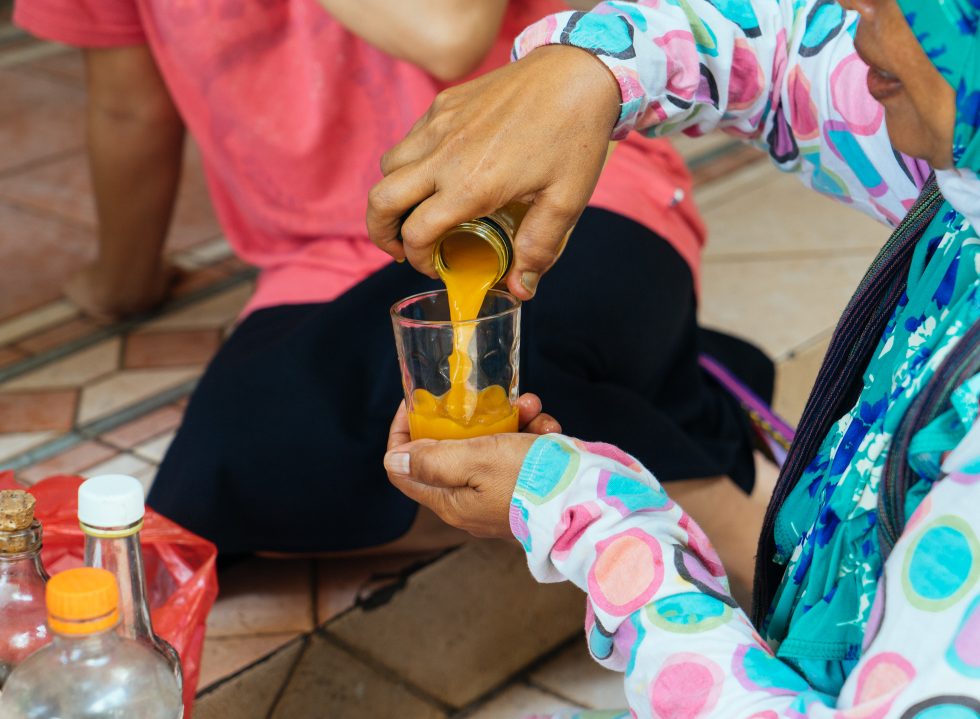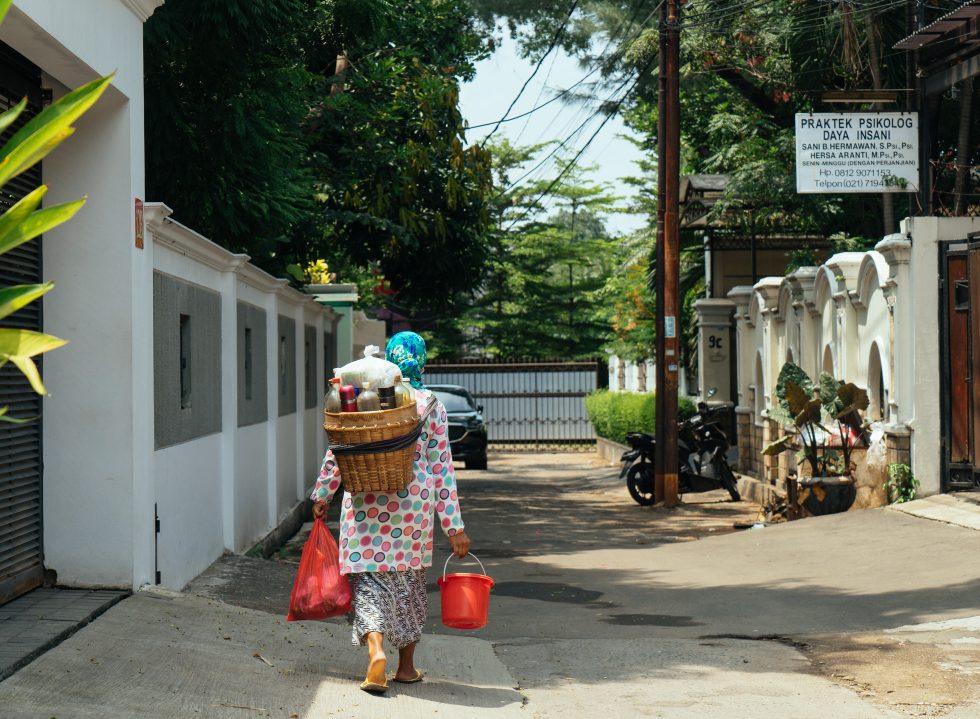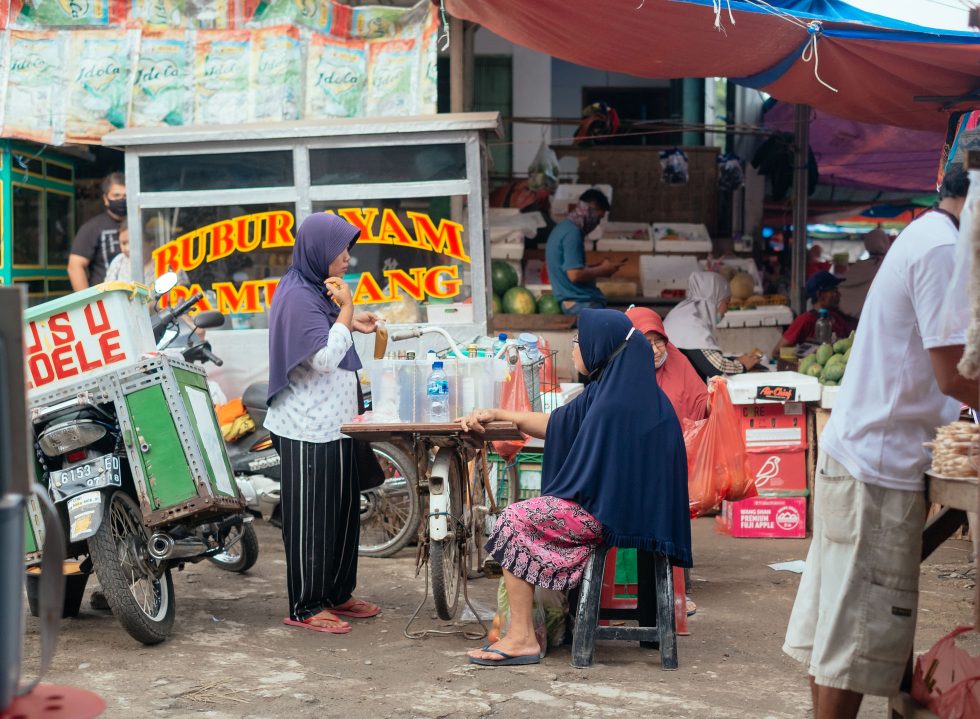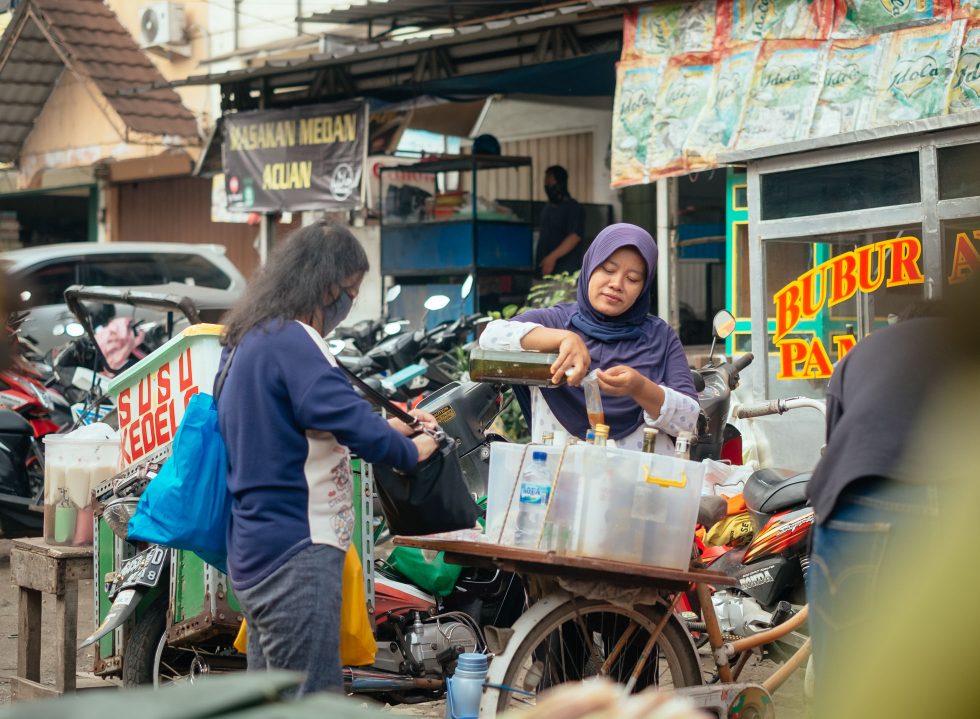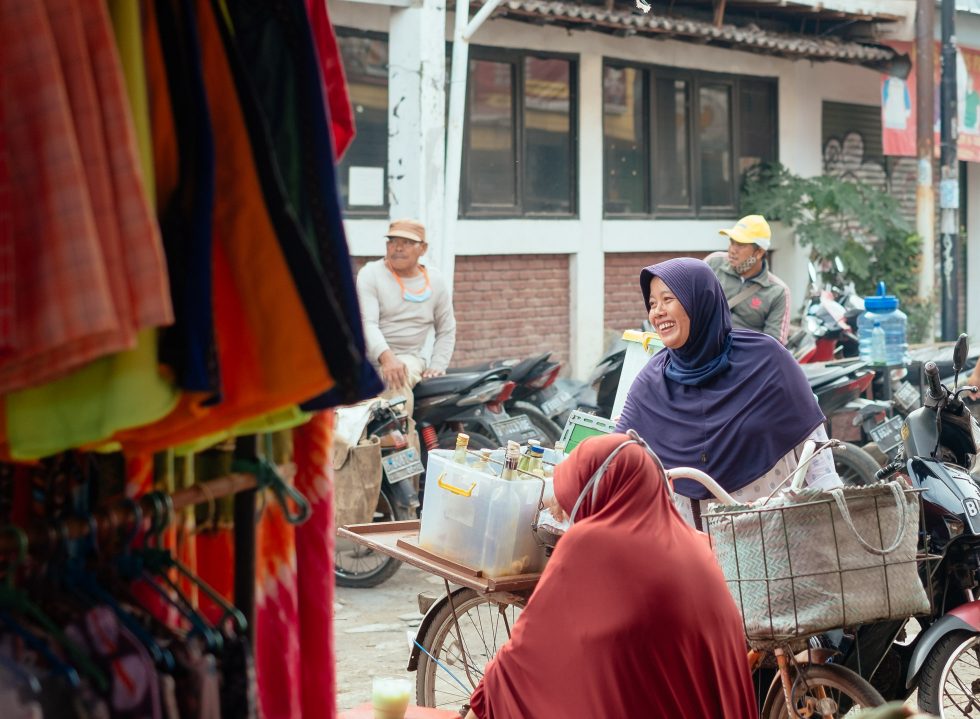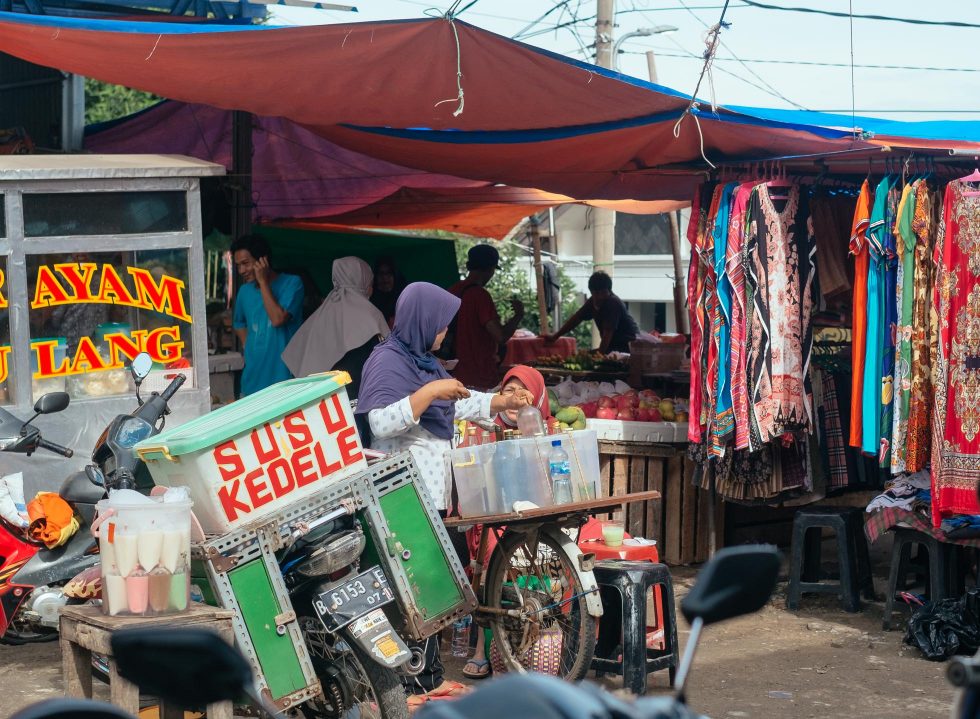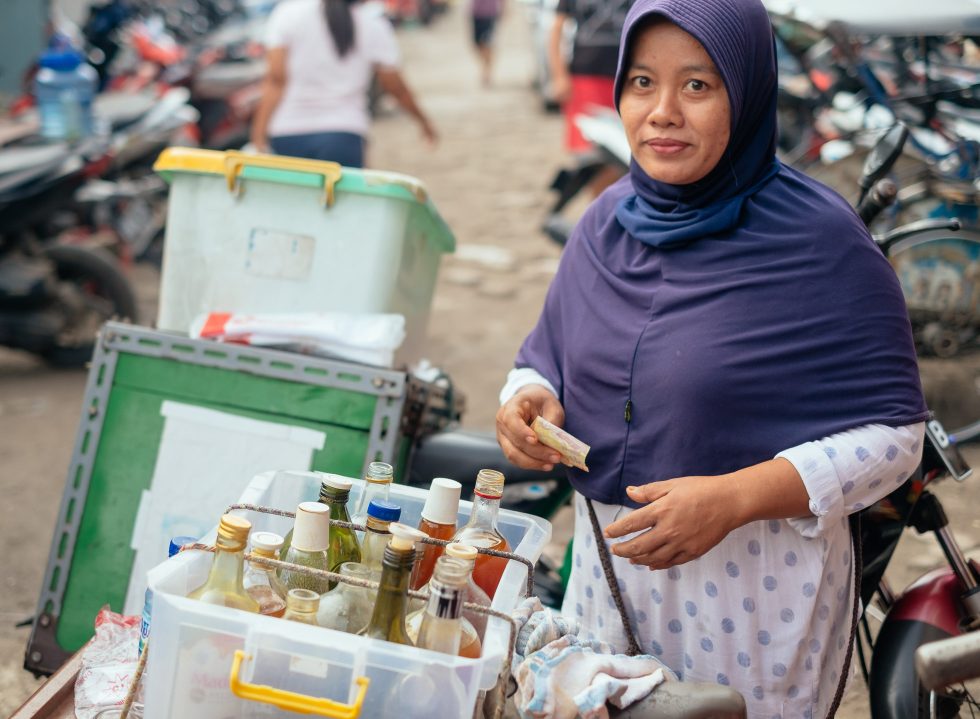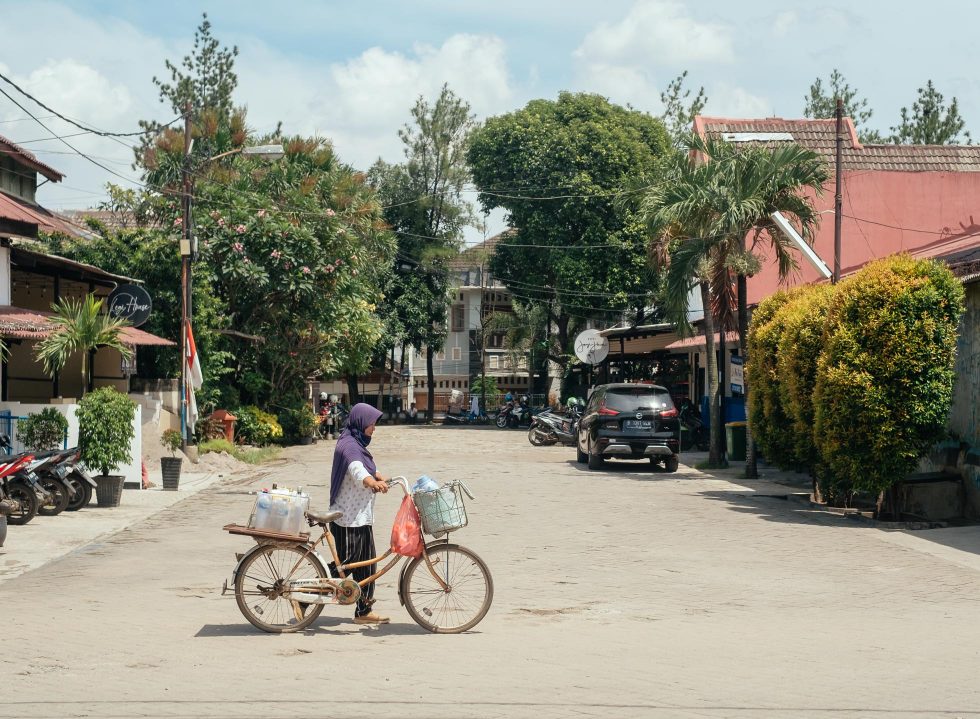They are the ladies clad in traditional kain kebaya or a modern modest ‘fit, often young or middle-aged and sporting a humble hijab or a low-bun hairdo—a little practicality goes a long way for Mbok Jamu. Day to day, these women scour, by foot or by bike, traditional markets, town alleys and residential neighbourhoods toting on their back a large bamboo basket with a dozen bottles, sometimes more, containing the quintessential Indonesian elixir of well-being: jamu.
For as long as Jakartans can remember, Mbok Jamu are the cape-less heroes of the city. Rain or shine, these women never skip a beat to sell the traditional herbal drinks to city- dwellers of all age. A youthful woman might go for a cup of warm kunyit asam or galian singset for the healing properties these drinks bestow, while men, often observing vitality and energy, find their remedy in a glass of daun beluntas or a simple brew of beras kencur for a mid-afternoon pick up. Elsewhere, mothers give their young ones a cup of temulawak to boost their kiddy appetite, and more variants exist to treat everyday ailments of the common folks.
These curious concoctions are the common lingo of jamu sellers. Like a mobile pharmacy, Mbok Jamu will hear one’s health complaints from a spectrum of common illnesses—a sore joint, bloating, fatigue, or a feverish feel—before offering the herbal mix that will restore the body fit in no time.
As a practice, jamu gendong (jamu-selling from a toted bamboo basket) is integrally Indonesian and unique to us, so one might wonder how come there are fewer jamu sellers in our neighbourhoods over the years?
For the small number of jamu ladies left, their days depend on the clientele’s array of malaise. However, the scare of the pandemic has reported an increase of jamu consumption among Indonesians, an impact that has remarkably affected micro and SME producers in the industry now, after a few years of the consumption’s gradual decline.
As an increasing number of Indonesian youths are putting their faith back into the health benefits of indigenous spices and plants, it’s a testament of local wisdom re-emerging and once again favourable amidst the colossal advances of medicine. Not to pin one against the other, but there’s a humility to gain from the humouring perspective: the thought that Mbok Jamu casually walk our streets carrying a pearl of wisdom with them to sell herbal elixirs for IDR 5,000 a cup.
